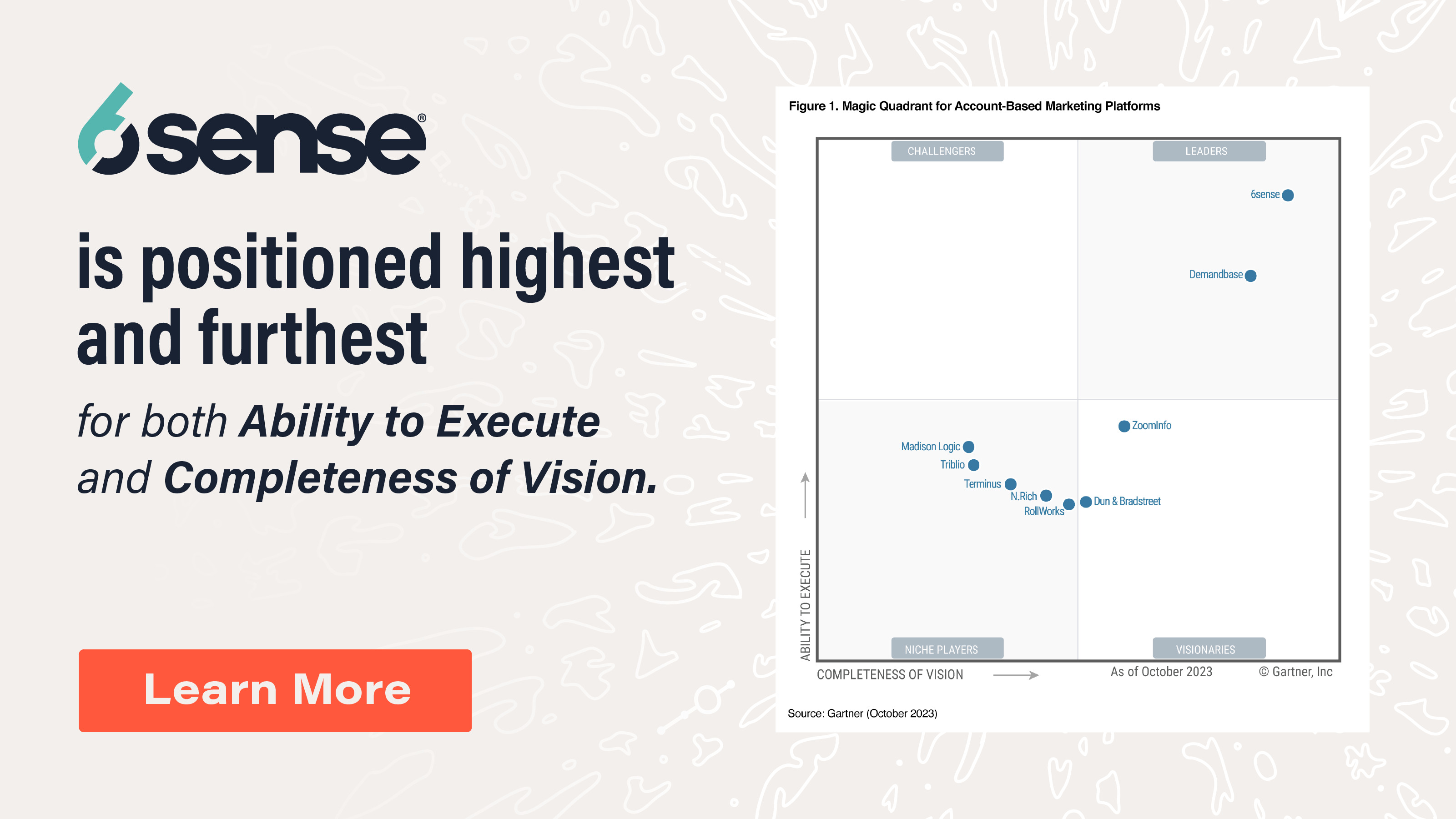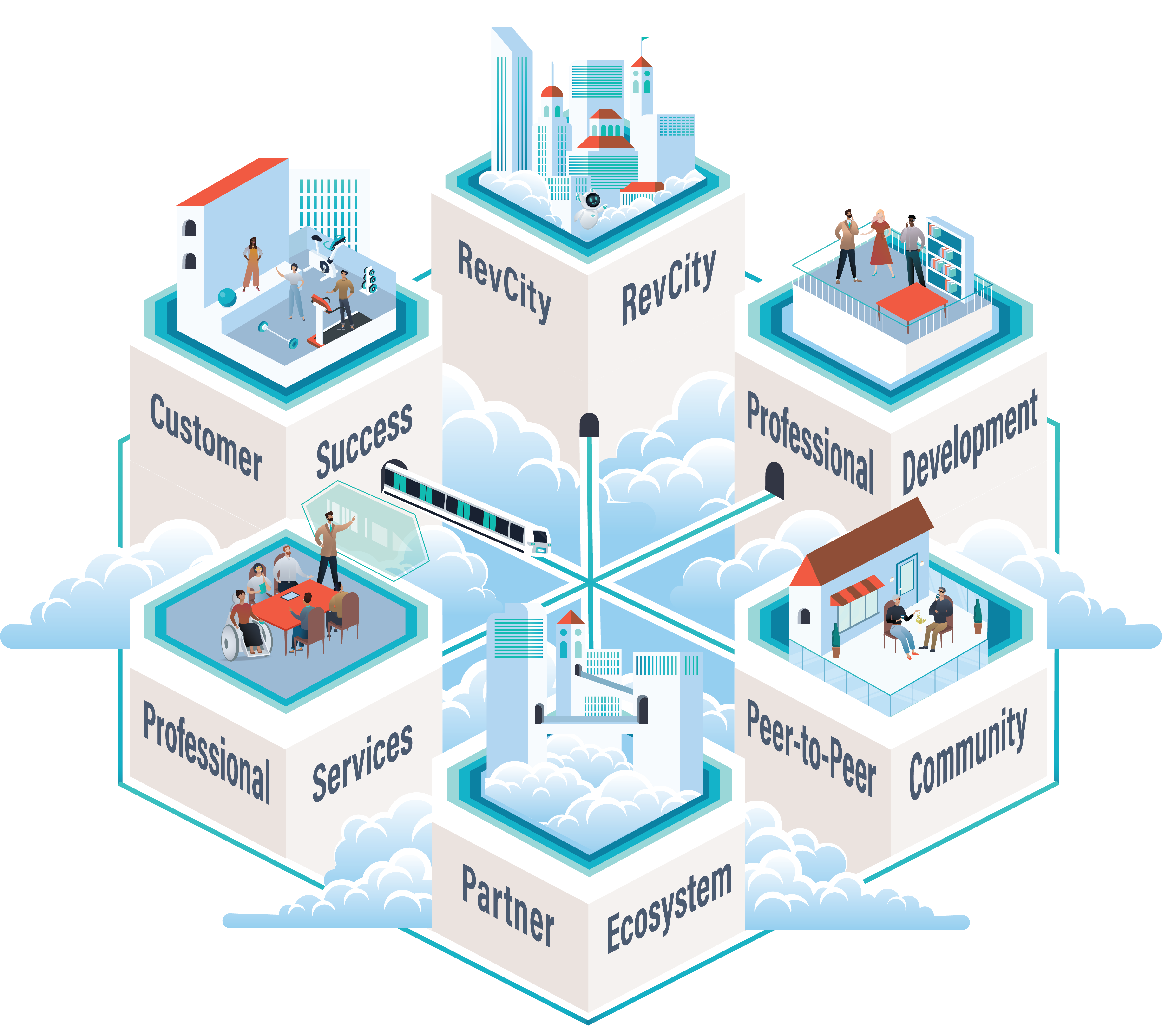The journey to the C-suite remains fraught for women. They often worry about being painted with negative stereotypes for speaking up, asking tough questions, and exerting influence.
Blending into the background might be a tempting alternative, but but doing so robs women of rightful opportunities. So how do women avoid this trap and earn their way to leadership roles?
This was the focus of a recent conversation sponsored by the Women of 6sense employee resource group (ERG). The group offers women employees support and motivation to help advance in their careers, including taking on leadership roles.
The private online fireside chat, titled Journey to the C-Suite, was led by:
|
|
|
|
|
Each panelist candidly shared insightful, inspiring stories about how they reached their C-suite roles. While they all come from different backgrounds and took unique paths to get to where they are today, their advice shared many commonalities.
Here are some highlights.
Be Your Authentic Self
During the chat, many of the panelists shared their own experiences about how, earlier in their careers, they feared being seen as aggressive or confrontational when they were merely offering their opinions, uncovering problems, or proposing solutions.
Some even resisted wearing red or dressing in other ways that come off as strong, and instead made themselves small and less noticeable. This is especially common with women of color who have to worry about racial and ethnic stereotypes, in addition to gender stereotypes, panelists said.
“That happened at so many points,” Allstate’s Hebalkar said — but it was especially noticeable once she became a VP. “I know I’ve got my stuff together, and I have a voice, and we’re actually at the inflection point in the company where we’re really going to grow, so I have some opinions to share.”
She continues: “I had a couple of people come to me after a meeting and say, ‘Hey, that was too aggressive. Can you tone it down a bit?’ And that was a really powerful moment of just completely being deflated, you know, right after a very interesting meeting where we made lots of decisions.”
Unfortunately, women who try to be less vocal and visible often go unheard by leadership, and as a result get passed over for opportunities that their strengths make them well-suited for.
Panelists stressed to embrace who you are: If you’re oriented toward solving problems, take the initiative, tackle the hard work no one wants to do, and show off your results.
Try not to allow imposter syndrome to take up space in your mind, they suggested. Instead, embrace your strength and look for other leaders who will encourage it.
6sense’s Lam shared a story about her time working for a male-dominated French electrical engineering company. At a conference, she piped up to ask a question, and the heads in the room swiveled. She was so nervous she felt like she was shaking, but she asked her question.
“I can’t remember exactly what I asked, but apparently it was intelligent enough for them to notice,” Lam said. “The CEO pulled me aside and said, ‘You know, that’s your superpower. You ask questions. Very insightful, provocative questions that get people thinking. Don’t stop doing that, because when they look at you, they take notice.’”
That leads to another point the panelists stressed…
Find the Right Mentor
The panelists acknowledged they didn’t get where they are today on their own. They had the support of mentors, sponsors, advisors, or coaches who helped uncover their strengths and identify things about themselves that needed improvement.
Finding the right mentor can be difficult, but it’s well worth the effort, the panelists said.
Zuora’s Hernandez suggested that when selecting a mentor, take a deep look within yourself to understand what you need. It’s also important to shop around for a mentor, because not everyone in leadership is well-suited for mentorship. And even those who are may not be the right match for everyone, she said.
You’ll know they’re the right mentor for you if they are:
- Enthusiastic about helping you work on your specific goals
- Are willing to have a trusting, open relationship, and
- Want the mentorship to be mutual
Great leaders recognize that people early in their careers can still teach them new things.
6sense’s Klek shared some advice from one of her mentors: Build your own personal board of directors — a team of mentors who can help guide you toward new strengths and opportunities. “It has served me so well in my career,” she said.
How Men Can Help
The panel was also eager to address the question asked by the men present at the discussion: How can men be better allies to women?
The panelists’ advice:
- Commit to supporting the women on their teams, in their departments, and at their company as a whole
- Be aware of biases that may keep the efforts of hardworking women from being noticed, and find opportunities to highlight those women’s successes
- Create opportunities for women to grow their skills or cultivate new skills that can help them advance in their careers
Participation in women-centered employee resource groups is also an important way for allies to show up. Discussion panels like these fireside chats offer insights into the lived experiences of women. Since ERGs also serve the purpose of networking, allies can make themselves available to serve as mentors or recommend others who would be good mentors.
[oms_cta id=19799]







